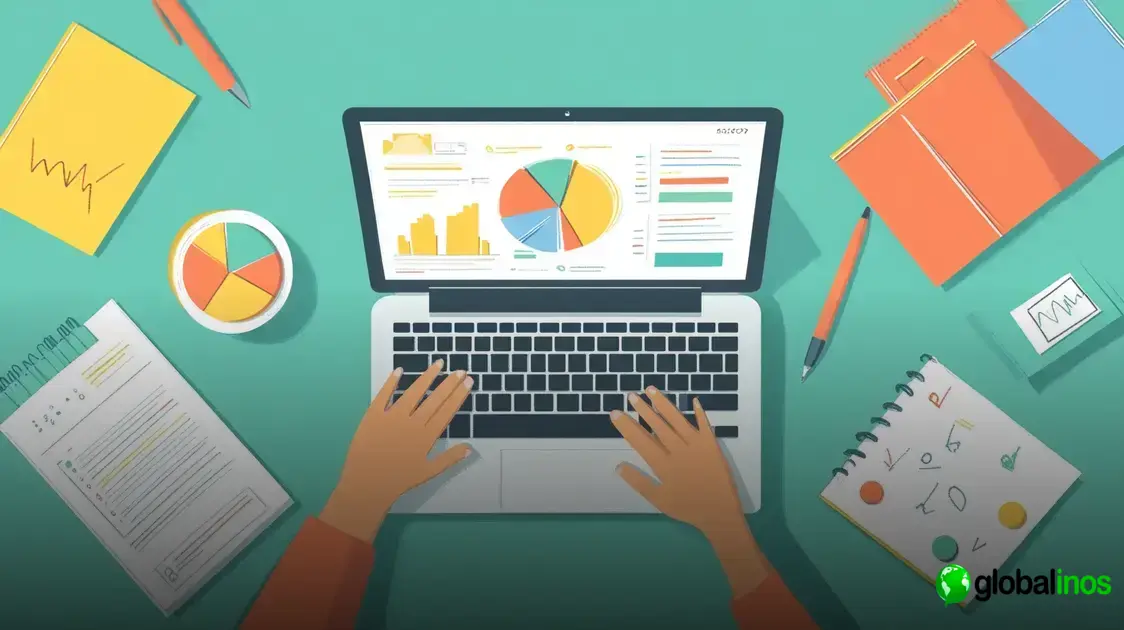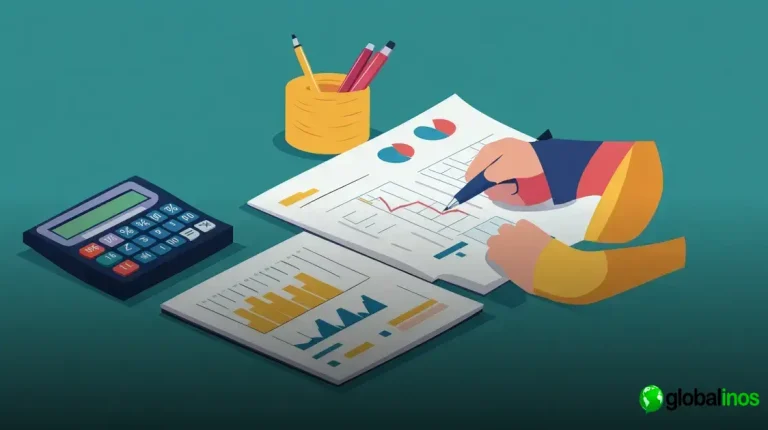Financial Planning for Beginners is essential for anyone looking to take control of their financial future. It provides a structured approach to managing money, helping individuals make informed decisions about budgeting, saving, and investing. Establishing a solid financial foundation early can lead to long-term stability.
Setting clear goals and creating a practical budget are key steps in Financial Planning for Beginners. Learning how to manage debts responsibly and implementing effective saving strategies can make a significant difference. Planning for retirement early also ensures financial security in the future.
Understanding the basics of Financial Planning for Beginners allows you to build a secure and stress-free financial life. Keep reading to discover essential strategies that will help you achieve financial success with confidence.
Understanding Financial Planning Basics
Understanding Financial Planning for Beginners is the first step toward achieving financial goals. It covers budgeting, saving, investing, and preparing for unexpected expenses. Learning how to manage money wisely ensures long-term financial stability.
What is Financial Planning?
Financial Planning for Beginners involves assessing your financial situation and creating a structured plan for the future. It includes evaluating income, expenses, debts, and investments to improve financial health and reach set goals.
Why Financial Planning Matters
Engaging in Financial Planning for Beginners provides a clear roadmap to financial security. With a solid plan, you can make informed decisions about spending, saving, and investing, ensuring better financial well-being.
Key Components of Financial Planning
Assessing Finances – Understanding income, expenses, and assets.
Setting Goals – Establishing short- and long-term financial objectives.
Budgeting – Managing money efficiently through a structured plan.
Emergency Fund – Saving for unexpected expenses.
Investing & Retirement – Growing wealth and preparing for the future.
By focusing on Financial Planning for Beginners, you build a solid financial foundation. Start today by evaluating your finances and making smart adjustments to secure a stable future.
Setting Achievable Financial Goals
Setting achievable financial goals is a crucial step in your financial planning journey. These goals act as a roadmap, helping you define what you want to achieve financially. When your goals are clear, you’re better equipped to create a plan that leads you to success.
Types of Financial Goals
Financial goals can be divided into three main categories:
- Short-Term Goals: These are goals you aim to achieve within one year. Examples include saving for a vacation or paying off a small debt.
- Medium-Term Goals: These goals usually have a timeline of one to five years. They may include saving for a car or funding a home renovation.
- Long-Term Goals: These are goals that take five years or more to achieve. Common long-term goals include saving for retirement or funding your child’s education.
How to Set Achievable Goals
To set goals that are realistic and attainable, consider following these steps:
- Be Specific: Define your goal clearly. Instead of saying you want to save money, specify how much you want to save and by when.
- Make it Measurable: Ensure that you can track your progress. For example, set a target to save $5,000 within a year.
- Consider Your Income: Set goals that are within your financial ability. Assess your current income and expenses to ensure your goals are achievable.
- Break it Down: Divide larger goals into smaller, manageable steps. This will help prevent feeling overwhelmed and provide a sense of accomplishment as you make progress.
- Review and Adjust: Regularly check your goals and be flexible. Life changes, and your financial goals should adapt to your situation.
By setting achievable financial goals, you create a strong foundation for your financial future. Remember, it’s essential to have both short-term and long-term goals, as they guide your everyday choices and pave the way for your financial success.
Creating a Budget You Can Stick To

Creating a budget you can stick to is an essential skill for anyone starting their financial planning journey. A well-structured budget helps you manage your money effectively, allowing you to achieve your financial goals while living comfortably.
Steps to Create a Practical Budget
Follow these steps to develop a budget that works for your lifestyle:
- Track Your Income: Start by listing all sources of income, including salary, bonuses, and side jobs. Knowing how much money you have coming in is crucial.
- List Your Expenses: Write down all monthly expenses. Include fixed expenses like rent or mortgage, as well as variable ones like groceries and entertainment. Don’t forget to account for annual or seasonal expenses, like insurance or holiday gifts.
- Classify Your Expenses: Divide your expenses into needs and wants. Needs are essential for daily living, while wants are non-essential items. This will help you see where you can cut back if necessary.
- Set Spending Limits: Based on your income and expenses, set limits for each category. Make sure your total expenses don’t exceed your income. If they do, look for areas to reduce spending.
- Use Budgeting Tools: Consider using budgeting apps or spreadsheets to keep track of your budget. These tools can help you visualize your spending and make adjustments easily.
- Review and Adjust Regularly: A budget is not a one-time task. Review your budget monthly to see if you are sticking to it. Adjust it as your income or expenses change, and make sure it reflects your current financial situation.
- Stay Committed: Sticking to a budget requires discipline and patience. Remind yourself of your financial goals to stay motivated and avoid unnecessary temptations to overspend.
By creating a budget you can stick to, you empower yourself to make informed financial decisions and work towards achieving your long-term goals. The key is to remain flexible and adjust as necessary while staying focused on your financial future.
Saving Strategies for Beginners
Saving money is key in Financial Planning for Beginners. Setting aside a portion of your income before paying bills ensures consistent savings and long-term stability. Small, regular contributions can grow over time.
Setting clear goals keeps you motivated. Whether saving for an emergency fund, a trip, or a major purchase, having specific targets helps. Financial Planning for Beginners also recommends using automatic transfers to build savings effortlessly.
Tracking expenses helps cut unnecessary spending. Budgeting apps or spreadsheets can reveal spending patterns. Seeking discounts and deals is another great way to boost savings. Financial Planning for Beginners encourages using special offers to maximize your budget.
An emergency fund provides security. Aim for three to six months of expenses to handle unexpected costs. Savings challenges can make the process more engaging. Following these Financial Planning for Beginners strategies helps build strong financial habits.
Managing Debt Wisely as a Beginner

Managing debt wisely is crucial for beginners who want to build a strong financial foundation. It’s important to handle debt responsibly to avoid falling into a cycle of financial struggle.
Understand Your Debt
Begin by making a list of all your debts. Note the amounts owed, interest rates, and due dates. Understanding what you owe will help you create a plan for managing your debt effectively.
Prioritize Your Debts
Not all debts are created equal. Focus on paying off high-interest debts first, such as credit cards. By reducing high-interest balances, you will save money in the long run.
Create a Debt Repayment Plan
Establish a plan for repaying your debts. This might include the following steps:
- Minimum Payments: Make at least the minimum payments on all debts to avoid late fees.
- Snowball Method: Pay off the smallest debt first while making minimum payments on larger debts. Once one is paid off, move to the next smallest.
- Avalanche Method: Alternatively, pay off debts starting with the highest interest rates first, which may save you more money.
Cut Unnecessary Expenses
Review your budget to identify areas where you can cut expenses. Redirect those savings toward paying down your debt faster. Consider reducing discretionary spending like dining out or entertainment.
Consider Debt Consolidation
If you have multiple debts, consider consolidating them into a single loan with a lower interest rate. This can simplify your payments and potentially save on interest costs.
Seek Help if Needed
If debt becomes overwhelming, don’t hesitate to seek help. Credit counseling services can offer advice and help you create a plan. They may even negotiate with creditors on your behalf.
Stay Committed
Managing debt takes time and discipline. Stay committed to your debt repayment plan and reward yourself for small victories along the way. Celebrate monthly payment milestones to keep yourself motivated.
With these strategies, you’ll be better equipped to manage your debt wisely as you build a solid financial future.
Planning for Retirement Early
Financial Planning for Beginners includes starting retirement preparation early. The sooner you begin, the more time your money has to grow. Estimating future expenses, like living and healthcare costs, helps determine how much you need to save.
Opening a 401(k) or IRA is a smart move. Even small contributions add up over time. If your employer offers a match, take full advantage—it’s free money that boosts your savings. Financial Planning for Beginners recommends increasing contributions as income grows.
Diversifying investments is crucial. Spreading money across stocks, bonds, and mutual funds reduces risk. Setting clear retirement goals and reviewing your plan regularly ensures steady progress. These steps are essential in Financial Planning for Beginners.
Exploring extra income sources enhances security. Rental properties, passive investments, or part-time work can supplement savings. Taking early action with Financial Planning for Beginners sets you up for a comfortable retirement.
FAQ – Frequently Asked Questions about Financial Planning for Beginners
What is financial planning?
Financial planning is the process of creating a strategy to manage your finances and meet your goals, such as saving for retirement, buying a home, or funding your education.
Why is it important to set achievable financial goals?
Setting achievable financial goals provides direction and motivation, helping you measure progress and make informed financial decisions along the way.
How can I create a budget that I can stick to?
To create a budget, track your income and expenses, categorize them as needs and wants, and set spending limits that align with your financial goals.
What are some effective saving strategies for beginners?
Effective saving strategies include paying yourself first, setting specific savings goals, using automatic transfers to savings accounts, and looking for discounts and deals.
How do I start investing as a beginner?
Begin investing by understanding different types of investments like stocks and bonds, setting investment goals, and considering your risk tolerance before choosing where to invest.
What steps should I take to manage debt wisely?
To manage debt wisely, understand what you owe, prioritize high-interest debts, create a repayment plan, cut unnecessary expenses, and seek help if needed.
Check out our article on Small Business Finance to discover strategies for managing your business finances and ensuring long-term growth.





